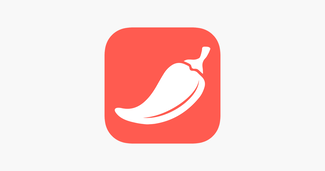|
Food Instagrams are their own niche, and Pepper is a new app that delivers.
Pepper is a new app that’s getting a lot of attention these days, and while it might not be the all-purpose platform that some other sites are, it seems to gain popularity, anyway. Pepper is a fun, food-focused social media app that's simpler to use than Instagram, but with more passion than Pinterest. With Pepper you can easily create an account, like and comment on tasty photos of food, share your own creations and connect with other people who really care about food. Discovering new recipes is fun Pepper combines the browsing experience of Instagram with the recipe sharing and community building inherent in other social media platforms. It lets you scroll through posts on one feed and go through the “global” community on another—you can think of that as your homepage. Clicking through each post lets you like, comment, or save those posts, similar to the user experience on Instagram. People get really excited about sharing their food and telling you how much they loved it Once you know what you're cooking, it's as easy as filling in the details of cooking time, number of servings, and level of difficulty, as well as step-by-step instructions that may include photos as you go. If you try someone else's recipe you found on the app, you can just search for it to link back to the original recipe page and you'll get all those details right in your post. Before posting, you can also tag it with ingredients, dietary needs, allergies, cooking skills, and anything else that might improve the search. Ultimately, it's not that different from the social media posts you're used to. Food-focused social media apps are less toxic than non-food-focused ones If you're a home chef and/or food lover looking for something to fill the void, give Pepper a shot. You won't have time for dooms-scrolling with such delicious recipes right in your feed.
0 Comments
 Twitter users have devised a plan to prevent Elon Musk from buying the social media platform, by agreeing to buy a single share in the company. Musk has been hinting at buying Twitter for a while. The billionaire even claimed he would do so “just for lolz” – but if Musk took over, it’s unlikely that shareholders would refuse – as long as he pays enough. Since Musk is worth over $100 billion, this shouldn’t be too hard. Tesla has been struggling financially recently and is currently under investigation by the US Securities and Exchange Commission (SEC) after Musk tweeted that he was considering taking Tesla private in 2018 (and then didn’t). He also tweeted “funding secured,” which the SEC believes could have misled investors. If Tesla stock prices continue to fall, news organizations will likely report on it and make Tesla appear less valuable than it actually is – which could make taking over Twitter more appealing for Musk as an investment opportunity. The idea is that, since the purchase of even a single share in Twitter comes with voting rights, thousands of people could band together to outvote Elon Musk's stake in the company.The idea of a "poison pill" defense has been around for decades and has been used by scores of companies to fend off hostile takeovers. In theory, any small investor can buy one share of stock and wield just as much power in voting as someone like Elon Musk (who currently owns about 20 million shares). Aveni also explained why they started a campaign to buy shares: "It seemed like someone would start this on Twitter anyway so we said go ahead and try it...if you want to keep Twitter independent then please do #BuyTwitter." As of Monday morning, more than 12,000 people claimed on Twitter that they had bought stock in response to Musk's takeover bid.Musk caused a storm on social media over the weekend by tweeting an offer to take Tesla private for $420 per share, representing a premium of about 20% over its trading price at the time. In a subsequent tweet, he said funding for the deal was secured. The stock later jumped 11% as investors scrambled to try and figure out what exactly was going on. Some users made their intentions clear by using hashtags such as #BlockElon and #BuyTwitter.Twitter has become a go-to platform for public figures and corporations to share their brands and messages. As such, it is no surprise that some users made their intentions clear by using hashtags such as #BlockElon and #BuyTwitter. The "poison pill" is an extreme measure by which shareholders can entrench themselves by suddenly issuing a large number of additional shares to dilute the influence of would-be buyers.If you haven't heard of the poison pill, don't worry. It's an extreme strategy that companies rarely use in real life. But given that Tesla CEO Elon Musk has just made a hostile bid for Twitter, it's important to understand how this process works. In order to thwart a potential hostile takeover, shareholders can entrench themselves by suddenly issuing a large number of additional shares to dilute the influence of would-be buyers. This is known as the "poison pill" strategy: it poisons the purchase attempt with sudden uncertainty by making it prohibitively expensive for anyone to acquire enough shares to get control of the company. This tactic has only been used about 30 times in corporate history, and most of these attempts have failed — but notably, one high-profile case succeeded in protecting a company from an unwanted buyout attempt: when William Ackman tried to take over Target Corp., they raised their stock prices so much that he eventually withdrew his offer and gave up on his pursuit. It might not work but it is interesting to see how many people are on board with this idea |
AuthorChristopher Castro Archives
August 2023
Categories
All
|


 RSS Feed
RSS Feed 
